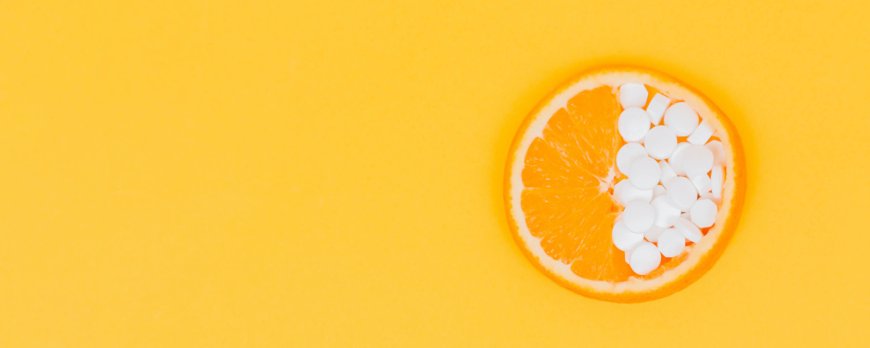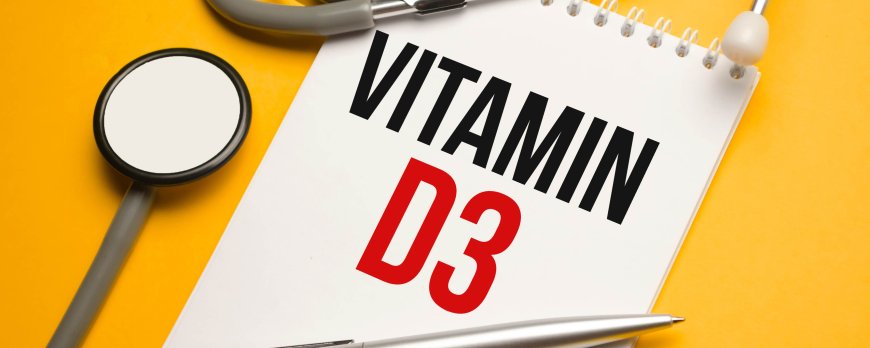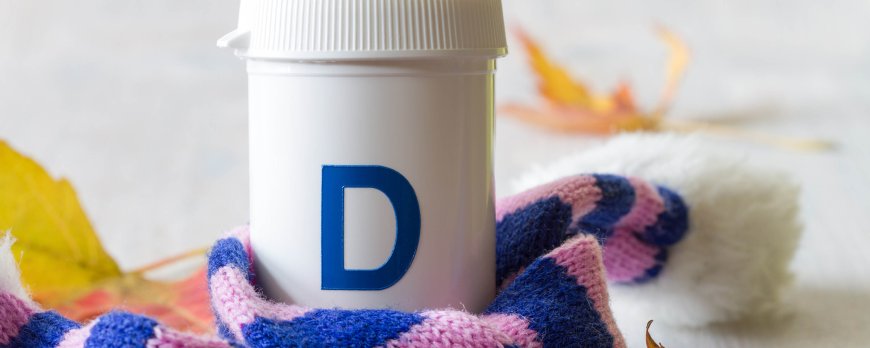Does vitamin D affect hair?
Uncover the link between Vitamin D and hair health. Does vitamin D affect hair? Dive into our comprehensive guide to find out more.

Does Vitamin D Affect Hair?
Vitamin D is an essential nutrient that has been linked to various aspects of health, but can it also affect the health and growth of our hair? In this article, we will explore the potential impact of vitamin D on hair health and discuss the role it plays in hair growth, the link between vitamin D deficiency and hair loss, the benefits of vitamin D for hair health, and more.
Key Takeaways:
- Vitamin D deficiency can lead to hair loss and other hair problems.
- Vitamin D stimulates hair follicles and promotes hair growth.
- People with conditions like alopecia areata often have lower levels of vitamin D.
- Taking vitamin D supplements and incorporating vitamin D-rich foods into the diet can support hair growth.
- Factors that can cause vitamin D deficiency include lack of sunlight, inadequate intake of vitamin D-rich foods, certain medical conditions, and medications.
Understanding the Role of Vitamin D in Hair Growth
Vitamin D plays a crucial role in the growth and maintenance of healthy hair. It stimulates hair follicles, promoting hair growth and preventing premature hair loss. When vitamin D levels are low, it can lead to hair problems, including hair loss. This is particularly evident in individuals with conditions like alopecia areata, where lower levels of vitamin D are often observed.
One of the key ways in which vitamin D influences hair growth is by aiding in the creation of new hair follicles. These follicles contribute to maintaining hair thickness and preventing hair loss. By stimulating the activity of hair follicles, vitamin D ensures an optimal environment for hair growth. However, it is important to note that vitamin D alone cannot guarantee hair growth, as it is just one piece of the puzzle in maintaining overall hair health.
Importance of Vitamin D-Rich Foods and Supplements
To support hair growth, it is essential to incorporate foods rich in vitamin D into the diet. Fatty fish such as salmon and mackerel, egg yolks, fortified dairy products, and mushrooms are excellent sources of vitamin D. Additionally, considering vitamin D supplements can help ensure adequate levels in the body, especially for individuals who may have difficulty obtaining sufficient vitamin D through dietary sources alone.
- Salmon
- Mackerel
- Egg yolks
- Fortified dairy products
- Mushrooms
However, it is important to consult with a healthcare professional before starting any supplementation regime to determine the appropriate dosage and ensure it aligns with individual needs and health conditions. While vitamin D supplementation can be beneficial, it should be part of a comprehensive approach to hair health that includes a balanced diet, regular exercise, stress management, and proper hair care practices.

The Link Between Vitamin D Deficiency and Hair Loss
Studies have shown that there is a clear association between vitamin D deficiency and hair loss. Vitamin D is essential for the stimulation of hair follicles and the promotion of hair growth, so when there is a deficiency, it can lead to various hair problems, including hair thinning and excessive shedding. Individuals with conditions like alopecia areata, which is characterized by patchy hair loss, often have lower levels of vitamin D.
Vitamin D plays a crucial role in the creation of new hair follicles, which are necessary for maintaining the thickness and overall health of the hair. When there is a deficiency, the hair follicles may become dormant, resulting in slower hair growth and ultimately hair loss. Therefore, it is important to ensure adequate levels of vitamin D to support optimal hair growth.
The Impact of Vitamin D Deficiency on Hair Health
- Vitamin D stimulates hair follicles and promotes hair growth.
- A deficiency in vitamin D can lead to hair thinning and excessive shedding.
- People with conditions like alopecia areata often have lower levels of vitamin D.
- The creation of new hair follicles is crucial for maintaining hair thickness and preventing hair loss.
To address vitamin D deficiency and support hair health, individuals can consider taking vitamin D supplements and incorporating foods rich in vitamin D into their diet. Foods such as fatty fish, fortified dairy products, and egg yolks are good sources of vitamin D. Additionally, spending time outdoors to expose the skin to sunlight can help the body naturally produce vitamin D. However, it is important to protect the skin from excessive sun exposure and use sunscreen to prevent damage.
While addressing vitamin D deficiency may help improve hair health, it is important to note that further research is needed to determine the effectiveness of vitamin D supplementation in treating hair loss. Consulting with a healthcare professional can provide personalized advice and guidance on maintaining adequate vitamin D levels and supporting overall hair health.
Benefits of Vitamin D for Hair Health
Incorporating sufficient amounts of vitamin D into your routine can have numerous benefits for your hair. This essential nutrient plays a crucial role in promoting healthy hair growth and maintaining overall hair health.
Here are some key benefits of vitamin D for your hair:
- Stimulating hair follicles: Vitamin D stimulates the hair follicles, promoting the growth of new hair strands. It plays a vital role in initiating the anagen phase of the hair growth cycle, where new hair is formed.
- Preventing hair loss: Adequate levels of vitamin D can help prevent hair loss. It contributes to the maintenance of healthy hair thickness and reduces the risk of premature hair loss.
- Enhancing hair appearance: Vitamin D promotes the absorption of calcium, which is essential for strong and healthy hair. It can contribute to the overall appearance and shine of your hair.
- Supporting scalp health: Vitamin D has anti-inflammatory properties and can help maintain a healthy scalp. It may reduce the risk of scalp conditions like dandruff and itchiness.
While sunlight is one of the primary sources of vitamin D, it is important to note that excessive sun exposure can be harmful to the skin. Therefore, incorporating vitamin D-rich foods into your diet and considering supplementation under the guidance of a healthcare professional are practical ways to ensure you're getting enough of this essential nutrient.
Remember, maintaining optimal vitamin D levels is just one aspect of a holistic approach to hair health. It is essential to address other lifestyle factors such as a balanced diet, regular exercise, stress management, and adequate sleep to promote overall hair wellness.

Vitamin D Sources and Dietary Recommendations
If you're looking to increase your vitamin D intake, there are several ways to do so. Vitamin D can be obtained through sunlight exposure, certain foods, and supplementation. Here are some sources of vitamin D and dietary recommendations to support hair growth:
Sunlight
One of the most natural ways to increase your vitamin D levels is through sunlight exposure. The sun's ultraviolet B (UVB) rays stimulate the production of vitamin D in the skin. Aim to spend around 10 to 15 minutes in the sun without sunscreen several times a week. However, it's important to protect your skin from prolonged sun exposure to reduce the risk of skin damage and sunburn. After getting your daily dose of vitamin D, apply sunscreen to protect your skin.
Vitamin D-Rich Foods
Include foods that are naturally rich in vitamin D in your diet. Some excellent dietary sources of vitamin D include fatty fish like salmon, mackerel, and sardines, as well as fortified dairy products like milk, yogurt, and cheese. Eggs are also a good source of vitamin D. Consider incorporating these foods into your meals to support hair growth and overall health.
Vitamin D Supplements
If you're unable to get enough vitamin D from sunlight and food sources, supplementation may be an option. Vitamin D supplements are available in different forms, including capsules, tablets, and liquid drops. It's important to consult with your healthcare provider to determine the appropriate dosage for your specific needs. They can also monitor your vitamin D levels through blood tests to ensure optimal supplementation.
By incorporating sunlight exposure, vitamin D-rich foods, and supplementation if necessary, you can support your hair growth journey and maintain adequate levels of vitamin D for overall health. Remember to consult with your healthcare provider for personalized advice based on your individual needs and circumstances.
Common Causes of Vitamin D Deficiency
Understanding the common causes of vitamin D deficiency is crucial for maintaining optimal hair health. Vitamin D deficiency can not only affect bone health but also contribute to hair problems, including hair loss. Here are some common causes of vitamin D deficiency:
- Lack of Sunlight Exposure: Sunlight is the primary source of vitamin D. Limited sun exposure, especially in regions with colder climates or during the winter months, can lead to lower vitamin D levels.
- Inadequate Intake of Vitamin D-Rich Foods: Some individuals may not include enough vitamin D-rich foods in their diet. Foods like fatty fish (salmon, mackerel), fortified dairy products, egg yolks, and mushrooms exposed to ultraviolet light can provide a good dietary source of vitamin D.
- Underlying Medical Conditions: Certain medical conditions, such as malabsorption disorders, liver or kidney diseases, may interfere with vitamin D absorption and metabolism, leading to deficiency.
- Medications: Certain medications, such as corticosteroids, anticonvulsants, and some cholesterol-lowering drugs, can interfere with vitamin D synthesis or absorption.
Addressing these common causes of vitamin D deficiency is essential for preventing hair loss and promoting overall hair health. Incorporating strategies to increase sun exposure, incorporating vitamin D-rich foods into the diet, and consulting a healthcare professional for monitoring vitamin D levels can help maintain optimal hair health.
If relevant:
Testing for Vitamin D Deficiency
Testing for vitamin D deficiency typically involves a blood test called 25-hydroxyvitamin D test. This test measures the level of vitamin D in the blood, helping to identify potential deficiencies and guide appropriate treatment.
Addressing Mild Vitamin D Deficiency
If you suspect you have a mild vitamin D deficiency, there are steps you can take to address it. Increasing your sun exposure can be an effective way to boost your vitamin D levels. Spending a few minutes outside in the sun each day, especially during the peak hours when the sun's rays are strongest, can help your body produce vitamin D naturally. However, it's important to protect your skin from harmful UV rays by applying sunscreen after a short period of sun exposure.
Another way to address vitamin D deficiency is by making dietary changes. Including vitamin D-rich foods in your diet can help increase your intake. Some examples of foods that are good sources of vitamin D include fatty fish like salmon and mackerel, fortified dairy products, eggs yolks, and mushrooms. If you have difficulty obtaining enough vitamin D through your diet, you may want to consider taking vitamin D supplements. Consult with a healthcare professional to determine the appropriate dosage and timing for supplementation.
Practical Tips for Increasing Vitamin D Intake:
- Take short walks outside during the peak hours of sun exposure.
- Apply sunscreen after a brief period in the sun to protect your skin.
- Incorporate vitamin D-rich foods into your meals, such as fatty fish, fortified dairy, eggs yolks, and mushrooms.
- Consider taking vitamin D supplements under the guidance of a healthcare professional.
Cautionary Notes:
- Avoid excessive sun exposure, as it can increase the risk of skin damage and skin cancer.
- Consult with a healthcare professional before starting any new supplementation regimen to ensure it is appropriate for your specific needs.
While addressing mild vitamin D deficiency can be beneficial for overall health, it's important to note that individual results may vary. If you continue to experience hair loss or other hair problems, it's advisable to consult with a medical professional for a comprehensive evaluation and personalized recommendations.

The Role of Vitamin D Supplementation
For individuals with vitamin D deficiency or those looking to support hair growth, supplementation may be a viable option. Vitamin D supplements can help increase vitamin D levels in the body, which is essential for healthy hair follicles and hair growth. When choosing a vitamin D supplement, it is important to consider the recommended dosage and timing.
Here are a few key points to keep in mind:
- Consult with a healthcare professional: Before starting any new supplement regimen, it is recommended to consult with a healthcare professional. They can assess your individual needs and recommend the appropriate dosage.
- Choose the right type of vitamin D: Vitamin D supplements come in different forms, such as vitamin D2 (ergocalciferol) and vitamin D3 (cholecalciferol). Vitamin D3 is more effective in raising vitamin D levels in the body and is the preferred choice.
- Take vitamin D with a meal: Vitamin D is a fat-soluble vitamin, which means it is better absorbed when taken with a source of dietary fat. Taking the supplement with a meal that contains healthy fats can enhance absorption.
- Monitor your vitamin D levels: It is important to regularly monitor your vitamin D levels while taking supplements. This can help ensure that your levels are within the optimal range and prevent overdosing.
Additional Considerations
In addition to supplementation, it is also important to incorporate other sources of vitamin D into your routine. Spending time outdoors in the sunlight, especially during peak hours, can help your body naturally produce vitamin D. However, it is crucial to balance sun exposure with the use of sunscreen to protect your skin from harmful UV rays. Consuming foods rich in vitamin D, such as fatty fish, egg yolks, and fortified dairy products, can also contribute to adequate vitamin D levels.
Keep in mind the following:
- Food sources of vitamin D: Incorporate vitamin D-rich foods into your diet, such as salmon, mackerel, tuna, fortified cereals, and dairy products.
- Sun exposure guidelines: Aim for about 10-30 minutes of sun exposure on your face, arms, and legs, a few times a week, without sunscreen, depending on your skin type and location.
- Individual needs may vary: The recommended daily dosage of vitamin D may vary depending on factors such as age, underlying health conditions, and geographical location. It is always best to consult with a healthcare professional to determine the appropriate dosage for your specific needs.
Overall, ensuring adequate vitamin D levels through supplementation, sunlight exposure, and a balanced diet can help support hair growth and maintain healthy hair. However, it is important to remember that individual results may vary, and it is always wise to seek professional advice when considering any new supplement or making significant lifestyle changes.

Further Research and Hair Loss Prevention
While the link between vitamin D and hair health is promising, further research is needed to fully understand its role in preventing hair loss. Numerous studies have shown that vitamin D deficiency is associated with hair loss, particularly in individuals with conditions like alopecia areata. Vitamin D is known to stimulate hair follicles, promote hair growth, and maintain hair thickness, but more research is needed to determine the optimal dosage and duration of supplementation.
Researchers are also exploring the potential benefits of combining vitamin D supplementation with other treatments for hair loss. Some studies suggest that vitamin D may enhance the effectiveness of medications and therapies commonly used to treat hair loss. Additionally, ongoing research aims to identify specific genetic markers that may play a role in vitamin D metabolism and impact hair health.
Current Studies on the Link between Vitamin D and Hair Loss
- A study published in the Journal of Cosmetic Dermatology found that individuals with alopecia areata had significantly lower levels of vitamin D compared to a control group. The researchers concluded that vitamin D deficiency may be a contributing factor to hair loss in these individuals.
- In a randomized controlled trial conducted in 2020, researchers studied the effects of vitamin D supplementation on hair loss in women with female pattern hair loss. The study found that participants who received vitamin D supplements showed improvements in hair density and thickness compared to those who received a placebo.
- A review article published in the International Journal of Trichology examined existing research on the role of vitamin D in hair growth. The authors concluded that vitamin D has a significant impact on hair follicle cycling and noted that further research is needed to determine the optimal levels of vitamin D for hair health.
While these studies show promising results, it is important to note that more research is needed to fully understand the relationship between vitamin D and hair loss prevention. As with any potential treatment, it is advisable to consult with a healthcare professional before starting any supplementation regimen or making significant changes to your hair care routine.
Incorporating Vitamin D Into Your Hair Care Routine
There are various ways to introduce vitamin D into your hair care routine to promote optimal hair growth. Vitamin D plays a crucial role in stimulating hair follicles and maintaining healthy hair thickness. By incorporating vitamin D-rich foods and products into your hair care regimen, you can support the growth and overall health of your hair.
1. Choose hair products enriched with vitamin D: Look for shampoos, conditioners, and hair masks that contain vitamin D. These products can help nourish your hair follicles and promote growth. Massage the product into your scalp, allowing the vitamin D to penetrate deeply and deliver its benefits to the hair roots.
2. Eat foods high in vitamin D: Include foods such as fatty fish (salmon, mackerel), egg yolks, dairy products, and fortified cereals in your diet. These foods are excellent sources of vitamin D and can provide the necessary nutrients to support hair growth. Consider incorporating them into your meals regularly.
3. Get some sunlight: Spending time outdoors and exposing your skin to sunlight can help your body produce vitamin D naturally. Aim for 10 to 15 minutes of sunlight exposure on your skin a few times a week. Remember to protect your skin from harmful UV rays by applying sunscreen after the recommended exposure time.
4. Consider vitamin D supplements: If you have a vitamin D deficiency or require additional supplementation, consult with a healthcare professional about taking vitamin D supplements. They can provide guidance on the appropriate dosage and duration based on your specific needs.
Conclusion
Incorporating vitamin D into your hair care routine can have a positive impact on the growth and health of your hair. By choosing vitamin D-enriched hair products, consuming foods rich in vitamin D, getting adequate sunlight, and considering supplementation if necessary, you can support optimal hair growth and prevent potential deficiencies. Remember to consult with a healthcare professional or dermatologist for personalized advice based on your individual circumstances.

Lifestyle Factors for Healthy Hair
While vitamin D plays a role in hair health, it's crucial to adopt a comprehensive approach for maintaining healthy hair. Incorporating certain lifestyle factors into your routine can further promote strong and vibrant hair. Here are some key practices to consider:
- Eat a balanced diet: A nutritious diet is essential for healthy hair growth. Include foods that are rich in protein, such as lean meats, eggs, and legumes, as well as fruits and vegetables for essential vitamins and minerals.
- Exercise regularly: Physical activity improves blood circulation, which can promote hair growth. Engaging in regular exercise also helps reduce stress levels, which can contribute to hair loss.
- Manage stress: Chronic stress can disrupt the hair growth cycle, leading to hair thinning and loss. Incorporating stress management techniques, such as practicing mindfulness, engaging in relaxation exercises, or pursuing hobbies, can help maintain a healthy hair environment.
- Get enough sleep: Quality sleep is crucial for overall health, including hair health. Aim for 7-9 hours of uninterrupted sleep each night to support the body's natural regenerative processes.
Additionally, it's important to keep in mind that maintaining a healthy scalp is essential for healthy hair. Gently cleanse your scalp regularly to remove excess oil, dirt, and product buildup. Avoid using harsh hair products that can strip away natural oils and irritate the scalp. Using a wide-toothed comb or a brush with gentle bristles can help prevent hair breakage.
By adopting these lifestyle factors, in addition to ensuring adequate vitamin D levels, you can support the overall health and appearance of your hair. Remember that every individual's hair needs are unique, and consulting with a healthcare professional or a dermatologist can provide personalized advice for your specific hair concerns.
Conclusion
In conclusion, maintaining sufficient levels of vitamin D is vital for promoting healthy hair growth and preventing hair loss. Vitamin D deficiency can result in various hair problems, including hair loss. This essential nutrient stimulates hair follicles and plays a crucial role in the creation of new hair follicles, which helps maintain hair thickness and prevent premature hair loss.
Individuals with conditions like alopecia areata or other forms of hair loss often have lower levels of vitamin D, highlighting the link between vitamin D deficiency and hair loss. Therefore, ensuring an adequate intake of vitamin D through supplementation or a diet rich in vitamin D-containing foods can support hair growth and overall hair health.
Factors that can contribute to vitamin D deficiency include limited sun exposure, insufficient consumption of vitamin D-rich foods, certain underlying medical conditions, and medications. To address mild deficiencies, it's important to increase sun exposure while taking precautions such as wearing sunscreen. Additionally, making dietary changes to include vitamin D-rich foods can also help improve vitamin D levels.
However, further research is necessary to determine the exact effectiveness of vitamin D supplementation in treating hair loss. Ongoing studies aim to provide more insights into the potential benefits and optimal dosage of vitamin D supplements for hair health. In the meantime, incorporating vitamin D-enriched hair products and adopting a holistic approach to hair care, including a balanced diet, regular exercise, stress management, and sufficient sleep, can contribute to overall hair health and prevent hair loss.
































































































































